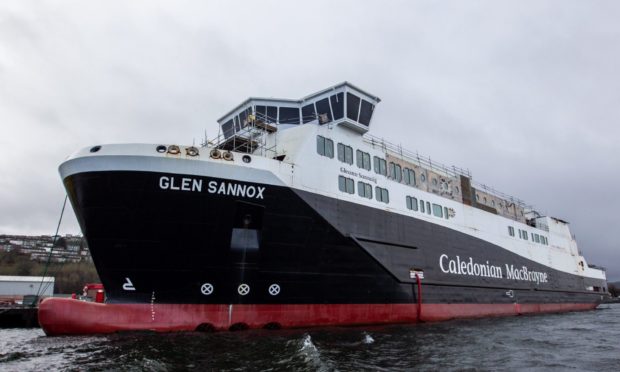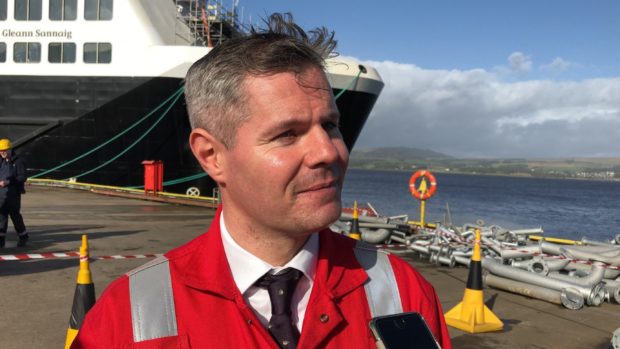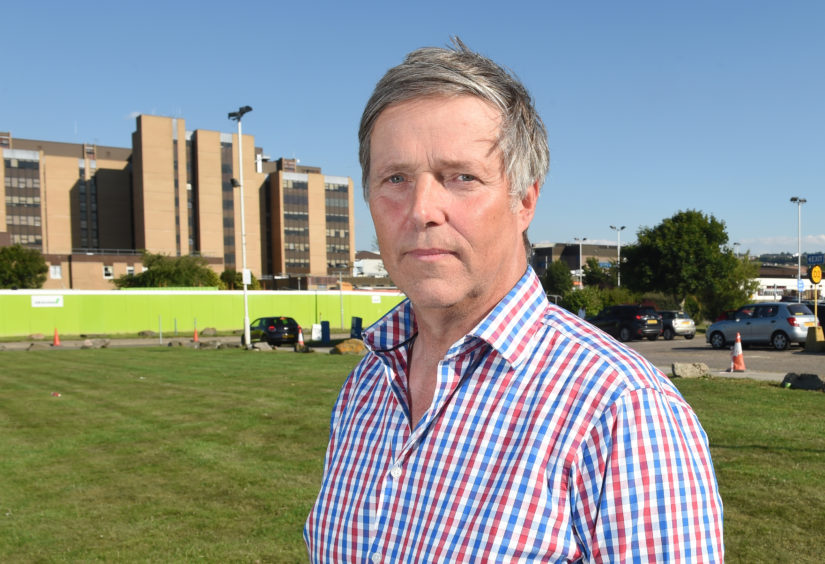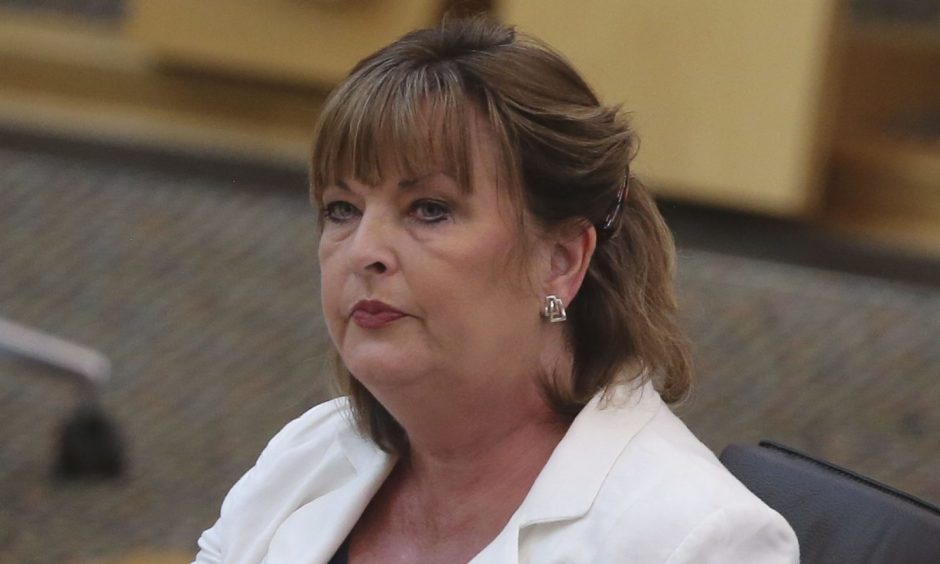A key figure in Nicola Sturgeon’s government has admitted ministers had struggled to understand why the construction of two Calmac ferries became delayed, contributing to a dramatic escalation in cost.
Islands minister Paul Wheelhouse made the admission when he appeared before MSPs investigating cost over-runs that have resulted in the bill increasing from £97 million to more than £200m.
Mr Wheelhouse appeared at Holyrood’s Rural Economy and Connectivity Committee, the day after his colleague Economy Secretary Fiona Hyslop announced that further delays mean the two vessels will be five years late.
It was very difficult amid competing advice from the contracting parties for ministers to fully understand the underlying causes of delay.”
Paul Wheelhouse, Islands Minister
During the final evidence session of the Holyrood inquiry, Ms Hyslop was also quizzed over controversial Scottish Government loans granted to the Clyde shipyard, where the ferries are being built, before it was nationalised.
Ms Hyslop admitted Ferguson Marine Engineering Ltd (FMEL) had cash-flow problems when the loan was issued during the disgraced former Finance Secretary Derek Mackay’s period in office.
The loan has been described as a device to smooth the way towards nationalising the business at a time when the company was in severe financial difficulties.
The committee is investigating the sequence of events which have led to the cost overrun and delays including a damaging fall out between Ferguson Marine Engineering Ltd (FMEL) shipyard and Caledonian Marine Assets Ltd (CMAL), the government quango that procured the vessels.
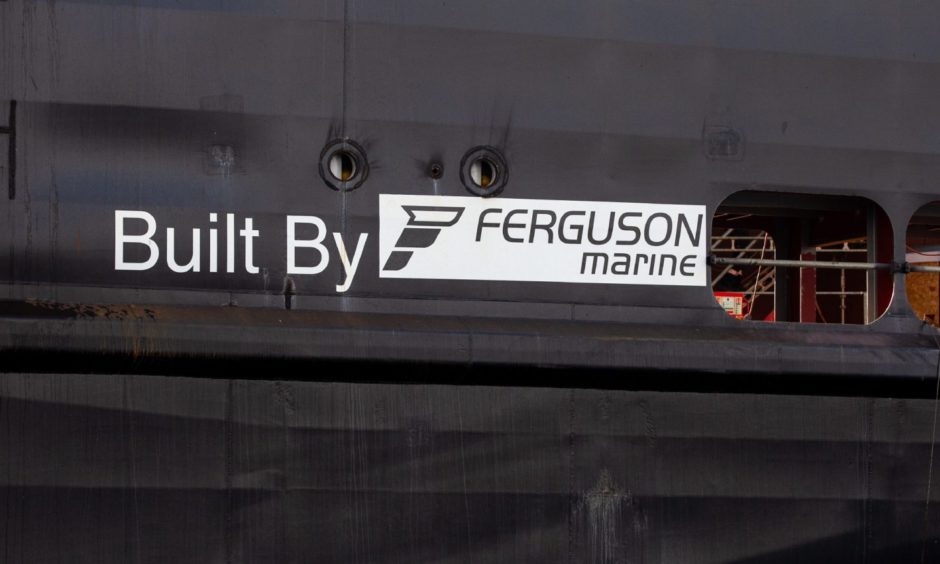
The original fixed-price £97 million ferry contract was awarded to the Ferguson shipyard in August 2015. That came almost a year after Jim McColl’s Clyde Blowers Capital had stepped in to bring the site out of administration.
But as costs spiralled, the Port Glasgow yard went into administration in the summer of 2019 and the Scottish Government took it over last December.
The vessels MV Glen Sannox, destined for the Arran service, and Hull 802, being built for the Skye, Harris and North Uist route, are still in the shipyard.
The coronavirus crisis has led to further delays, which means the Glen Sannox is due to be handed over between April and June 2022, compared with a previous estimate of the end of 2021.
Hull 802 is not going to be ready until December 2022 at the earliest and may not be in service until February 2023. It had been hoped it would be ready in the summer of 2022. Both vessels were originally supposed to have been operating during 2018.
Minister admits multimillion-pound cost rises are unsatisfactory
Mr Wheelhouse said it first became apparent that delays were likely in February 2016, before he came into post.
The then-economy minister, Keith Brown, was made aware of the concerns but there was a feeling that strategies had been introduced to tackle the problem.
But when asked if enough action had been taken, Mr Wheelhouse admitted that it was “not satisfactory” that costs had gone up.
The committee had heard that relations between CMAL and FMEL had deteriorated so badly that Mr McColl was reduced to appealing directly to First Minister Nicola Sturgeon and her then-Finance Secretary Derek Mackay, who has since resigned in disgrace.
Committee convener Edward Mountain said documents submitted to the inquiry revealed emails that showed Mr McColl had been appealing directly to ministers including Ms Sturgeon and Humza Yousaf, who was transport minister around that time, while Mr McColl had met Mr Mackay.
Mr Mountain said: “It appears that when the relationship breaks down they go directly to the first minister or Derek Mackay to get what they wanted.”
Mr Wheelhouse agreed the relationship was “very strained” and said mediation had been encouraged and claimed it was FMEL representatives who had approached ministers rather than the other way around.
Fran Pacitti, Scottish Government director of Aviation, Maritime, Freight and Canals, said she wasn’t surprised by the breakdown in relations because Fergusons was considering legal action against CMAL in the run up to December 2018.
When asked who was responsible for the “fiasco” by Labour’s Colin Smyth, Mr Wheelhouse said there had been “contractor failure”. He claimed the disagreement between FMEL and CMAL made the situation “very difficult” for ministers to understand.
“There was undoubtedly, in our view, contractor failure and our advisers have confirmed this,” Mr Wheelhouse said. “…The reasons for that are complex so I’m not going to point the finger of blame as to how that came about. But it was very difficult amid competing advice from the contracting parties for ministers to fully understand the underlying causes of delay.”
Mr Wheelhouse indicated ministers would review the governance relationship between CMAL, ferry operator CalMac, and the Scottish Government agency Transport Scotland.
A controversial £30 million Scottish Government loan
The Scottish Government has been criticised for failing to explain how it was that it created a pathway to nationalise FMEL while issuing a £30m loan “to further diversify their business” while knowing that it was in danger of financial collapse.
At the weekend it emerged the Scottish Government knew FMEL was in danger of collapse two years before it nationalised the business.
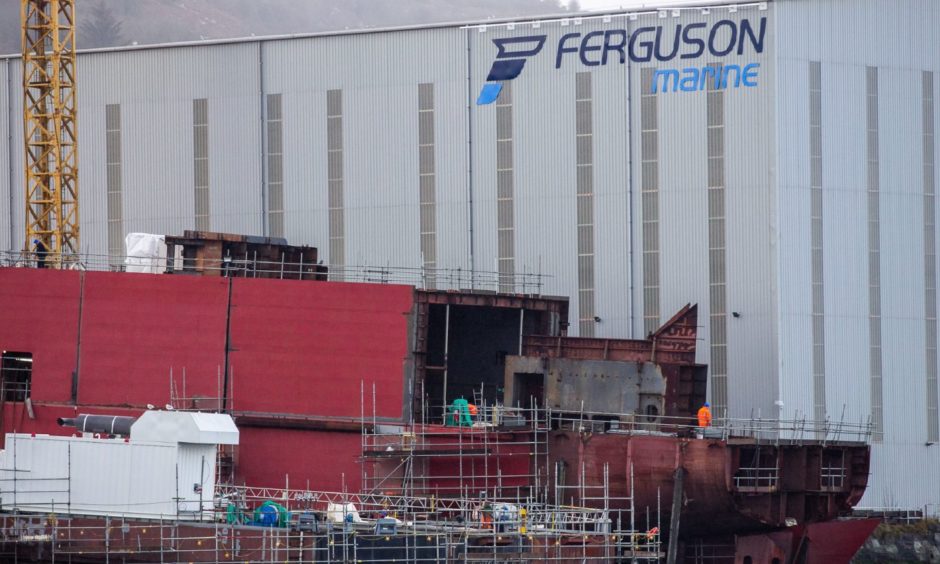
Confidential documents revealed that ministers were making financial arrangements should the shipbuilder fall into administration two years earlier – offering a £15m loan a month later.
While a year later Mr Mackay was telling the public a further £30m loan was about diversification, the loan came with a right to buy clause giving the Scottish Government the option to take over the yard.
Graham Simpson of the Tories said the £30m loan was granted following a meeting between Mr McColl and Ms Sturgeon.
Questioning Economy Secretary Fiona Hyslop when she appeared in front of the committee, Mr Simpson said Mr McColl was expressing concern over “cash flow” to the first minister.
“The loan was nothing to do with diversification, was it?” Mr Simpson said. “It was about rescuing the business, keeping the business going.”
Ms Hyslop said: “I was not the Cabinet Secretary at the time… (but) the explanation is clearly to address the cashflow issues the company was facing. It is quite clear they were facing cash flow issues – particularly in relation to the £15m loan. The £30m loan was to assist sustainability of the business. For the business to be sustainable it needed to be able to continue in business and that’s not unusual, for the government to support businesses to make sure they can continue in business. The alternative would be to have mass redundancies and the company to close.”
What is the Holyrood inquiry trying to find out?
The remit of the Rural Economy and Connectivity Committee is to “identify and address current and future challenges and opportunities for the procurement of new vessels to support Scotland’s ferries network”.
Key to the remit is investigating the costs of the two delayed ferries for the Clyde and Hebrides network.
This will involve questions about the use of taxpayers’ money to bail out FMEL and the process that led to the firm’s nationalisation.
Also under scrutiny is the role played by Jim McColl of FMEL, the billionaire SNP backer who has been highly critical of Nicola Sturgeon and other ministers for what he sees as a failure to get a grip of the crisis.
Given her own involvement in the matter, the action taken by Ms Sturgeon is also being looked at by the committee, as well as that taken by disgraced former finance secretary Derek Mackay and current Justice Secretary Humza Yousaf, who was transport minister during the period in question.
The strained relationship between FMEL and CMAL will also lie at the heart of the inquiry
